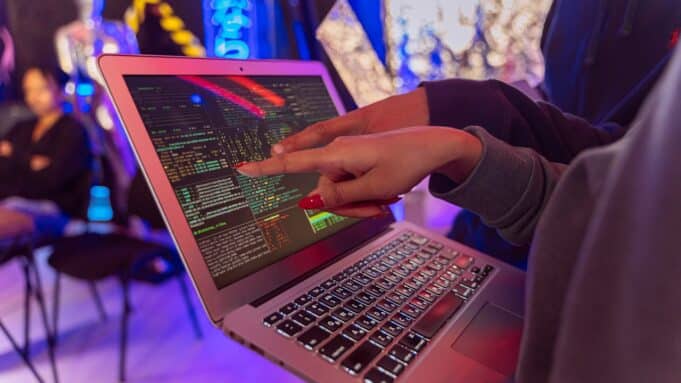In today’s rapidly evolving digital landscape, hiring remotely has become more prevalent, especially in industries like healthcare. While the benefits of hiring remote employees are numerous, including cost savings, access to global talent, and increased flexibility, it also introduces new challenges—most notably, data privacy concerns. When it comes to hiring remote workers in sensitive fields such as healthcare, where personal and medical information is regularly handled, ensuring data privacy is critical.
This article explores the key data privacy considerations when hiring a medical virtual assistant, particularly for roles like a medical virtual assistant, and offers practical advice for maintaining compliance with privacy laws, securing sensitive information, and building trust with clients and employees.
The Importance of Data Privacy in Remote Hiring
Data privacy has always been important, but as remote work becomes more common, the potential risks associated with data breaches, mishandling of personal data, and cyber-attacks have also increased. This is particularly true for industries like healthcare, where sensitive personal and medical data is routinely handled. Employees working remotely may access this information from various locations, devices, and networks, increasing the likelihood of data being compromised if proper safeguards are not in place.
A medical virtual assistant, for example, is entrusted with handling patient records, appointment scheduling, medical billing information, and other private data. With remote work, this sensitive information may be accessed from home offices or public spaces. As such, it is imperative for healthcare providers to adopt comprehensive data privacy strategies to ensure that sensitive information remains protected at all times.
Key Data Privacy Concerns for Remote Workers
When hiring remotely, there are several critical concerns that organizations must address to safeguard data privacy:
1. Secure Access to Sensitive Data
Remote workers often use personal devices and networks to carry out their tasks, which can pose significant security risks. These devices may not have the same level of security as those used within the organization’s protected infrastructure. In particular, personal devices may lack encryption, firewalls, or other security measures, making them vulnerable to hacking.
For medical virtual assistants, this is a major concern. Personal health information (PHI), including patient records, medical histories, and test results, must be protected in accordance with regulations like the Health Insurance Portability and Accountability Act (HIPAA) in the United States. Any breach of PHI can lead to severe financial penalties, loss of trust, and even legal action.
To mitigate this risk, organizations should enforce policies that require remote workers to use secure, encrypted devices and networks when accessing sensitive data. A virtual private network (VPN) can provide an added layer of security by encrypting internet traffic and safeguarding data from unauthorized access. Additionally, healthcare employers should ensure that their remote workers are using password managers, multi-factor authentication, and strong, unique passwords to further reduce the likelihood of unauthorized access.
2. Compliance with Privacy Regulations
Different countries and regions have specific laws and regulations regarding data privacy. For example, in the U.S., healthcare organizations must comply with HIPAA, which mandates that PHI is kept confidential and secure. Similarly, the European Union’s General Data Protection Regulation (GDPR) imposes stringent data privacy requirements on companies that process the personal data of EU residents.
When hiring remotely, especially in healthcare, it’s essential to ensure that both the employer and employee understand the legal implications of handling sensitive data. This includes verifying that remote workers comply with data protection laws relevant to their region or the region where their patients reside.
A medical virtual assistant, for instance, should be trained on the legal requirements surrounding patient data, including how to store, transmit, and dispose of sensitive information. Employers should also implement procedures for monitoring compliance and regularly audit remote employees to ensure they are adhering to these guidelines.
3. Securing Communication Channels
Effective communication is a hallmark of remote work, but it can also introduce vulnerabilities if proper safeguards are not in place. Email, messaging platforms, and video calls are commonly used to share sensitive information, but these communication channels can be insecure if not configured correctly.
For example, if a medical virtual assistant shares patient information over an unsecured email connection, there is a risk that this data could be intercepted by malicious actors. Similarly, using unencrypted messaging apps to share confidential medical details could lead to a data breach.
To address this concern, healthcare organizations should mandate the use of encrypted communication tools for all interactions involving sensitive data. Video conferencing platforms, instant messaging apps, and email services should all meet high security standards to prevent unauthorized access. Regular training should be provided to remote employees to ensure they understand how to use these tools securely.
4. Device and Data Storage Security
Remote workers often use their personal devices for work, which means that sensitive data might be stored on devices that are not properly secured. This can include laptops, tablets, smartphones, and external hard drives. If these devices are lost or stolen, it could lead to a data breach, especially if the devices contain unencrypted information.
To mitigate this risk, healthcare organizations should implement device management policies that require remote workers to use company-approved devices with built-in security features. This includes enforcing full-disk encryption, requiring password protection, and disabling the ability to transfer data to unsecured external storage devices.
In addition, sensitive data should not be stored locally on devices unless absolutely necessary. Instead, organizations should use secure, centralized storage systems that are protected by encryption and strong access controls. This way, even if a remote worker’s device is compromised, the sensitive data remains secure.
5. Monitoring and Auditing Remote Employees
Given the lack of physical oversight in remote work environments, it is crucial to implement monitoring and auditing systems to ensure that remote workers are complying with data privacy and security policies. This is especially true in industries like healthcare, where the consequences of a data breach can be dire.
For a medical virtual assistant, monitoring can include regular audits of the systems they use to access patient information, as well as logging and tracking of any changes made to sensitive data. Employers should also conduct regular training sessions to remind remote employees of their responsibilities regarding data security and privacy.
Monitoring remote workers should be done transparently, with clear communication to employees about what is being monitored and why. Additionally, monitoring tools should be used in a way that respects employee privacy and complies with data protection laws.
6. Employee Training and Awareness
One of the most effective ways to prevent data breaches and security incidents is to ensure that remote workers are well-trained in data privacy best practices. Employees must understand the importance of safeguarding sensitive data and how to avoid common mistakes that can lead to breaches.
For medical virtual assistants, this training should cover a wide range of topics, including the legal and ethical implications of handling medical data, secure data transmission methods, proper disposal of sensitive documents, and how to identify and respond to potential cybersecurity threats such as phishing scams.
Regularly updated training programs should be a standard part of the onboarding process for remote employees, and ongoing training sessions should be held to reinforce best practices. In addition, employers should create a culture of security and privacy within their organization by fostering open communication about potential threats and encouraging employees to report any concerns.
Conclusion
As remote work continues to grow in popularity, especially in industries like healthcare, organizations must prioritize data privacy to ensure the safety of sensitive information. Hiring a medical virtual assistant remotely presents unique challenges due to the sensitive nature of the data involved. By implementing strong security measures, providing ongoing training, and ensuring compliance with privacy regulations, employers can mitigate the risks associated with remote hiring and protect patient data from breaches.
The key to successful remote hiring is finding the right balance between flexibility and security. Organizations must empower their remote workers to perform their jobs effectively while also ensuring that robust safeguards are in place to protect sensitive data. By taking a proactive approach to data privacy, healthcare providers can maintain the trust of their patients and comply with legal requirements, all while benefiting from the advantages of a remote workforce.















